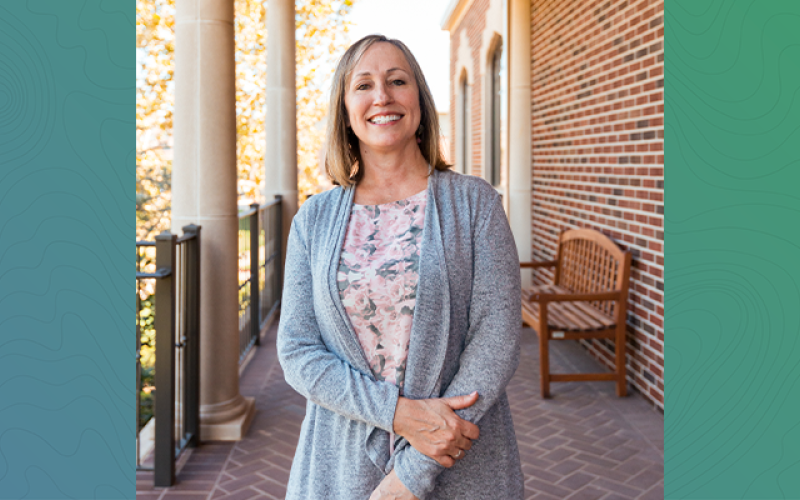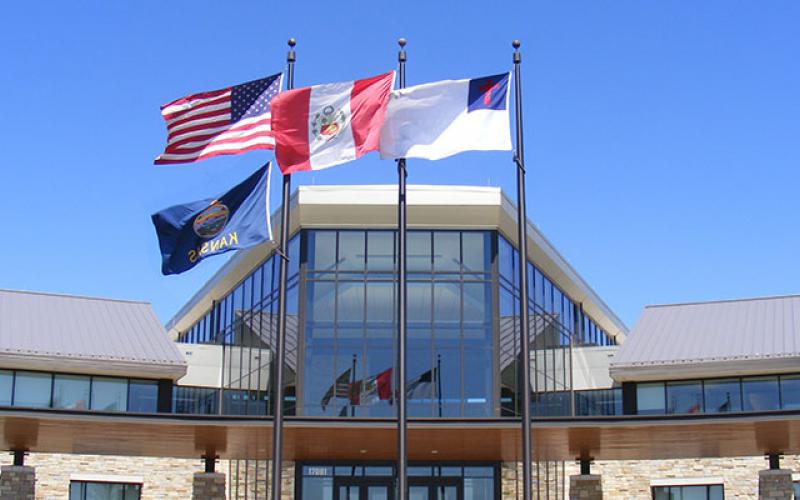
Brownings retire after 35 years of leadership
Lindell and Kay Browning are nearing retirement after serving the Eurasia Region in leadership for more than 35 years. For 22 years Lindell has led the Eastern Mediterranean Field as field strategy coordinator. This year he is turning over that role to Khalil Halaseh, a pastor in Jordan.
The Eastern Mediterranean Field is currently made up of six countries: Cyprus, Egypt, Jordan, Israel, Lebanon, and Syria, as well as two additional areas. There are 30 organized churches and a membership of more than 2,000 people (2012 statistics).
After studying Arabic for two years in Jordan, the Brownings began their work by pastoring a church in Nazareth for six years. From the very beginning, their intent was to raise up national leaders who could take over ministry at the local, district, and field levels.
"We have 33 pastors, now," Lindell said. "We don't have any churches pastored by non-Arabs now. That was significant because that was our intention when we went — to identify indigenous leaders."
In 1985, while they were pastoring, the Church of the Nazarene across the field experienced a revival, and out of that movement came today's pastors and the district superintendent in Israel. As a result, the field relaunched Eastern Mediterranean Bible College, where many of them trained for ministry. The college, which first opened in the 1950s, ceased operations in 1960s due to regional conflict.
The Intifadah in Israel between 1988 and 1994 also prompted the church to become involved in ministry in the West Bank through Nazarene Compassionate Ministries.
Another significant moment came when the Brownings were first able to re-establish contact with the leader of the church in Lebanon, Abdo Khanashat. The Lebanese churches and a primary school had been cut off from the rest of the field and the region from 1975 to 1991 due to Lebanon's civil war.
"Our first trip back to Beirut, meeting our leaders there, Abdo wept and said 'We've been so cut off from our church; we're so glad you came back and reconnected us with our church,'" Lindell said.
Through the reconnection, the region was able to send support to the churches and the school, which helped boost and expand their ministry to their communities, even in the midst of turmoil.
A renewed commitment to the field for the family came during the first Gulf War in 1991. They had been serving in the Middle East for 10 years.
"That was a very stressful time, and we were told we would have to leave if it got bad," Kay said. "Our kids were in school so it was difficult to think about disrupting their lives. We were torn between doing what we were told to do and wanting as a parent to keep our kids safe and also be sensitive to how traumatic this was. When we finally decided to go to Cyprus, we stayed there six weeks."
While they were in Cyprus they realized how much they longed to go back and felt a fresh sense of commitment to the field. Thankfully, they were able to return.
Lindell and Kay love the beauty and diversity across the Eastern Mediterranean Field and are grateful that all four of their children, who are now adults, have a love for the Middle East and consider it their home.
"I think of a rich culture, a diverse culture, a fun-loving culture," Kay said. "All the cultures are really family-oriented. They love children and they loved our kids. A lot of preconceived ideas are wrapped around the Middle East. [We have] the opportunity to dispel some of the preconceived ideas and judgments in that part of the world."
Lindell said that he is most proud of the indigenous leadership that has been developed, including the milestone of turning over his job to a local leader.
Halaseh is grateful for Lindell's years of leadership and mentoring as he grew up in the church and answered a call to pastoral ministry.
"Pastor Lindell has the heart of father and heart of shepherd," Halaseh said. "He cared for me all the time and I believe he loves and respects me."
The two first met in 1989 when Halaseh visited a relative in Jerusalem. As a new believer of just two weeks, he visited the Church of the Nazarene where Lindell was the pastor. Lindell took time to encourage the young man. Years later, when Halaseh was a leader in his Nazarene church in Jordan, Lindell was named field strategy coordinator and Halaseh remembered their encounter and his humility as a pastor. Over the years, Lindell continued to counsel and encourage Halaseh as he grew in his leadership and took on more responsibility in Jordan and the Middle East.
"I feel very positive about the future," Lindell said. "I think there are going to be some adjustments for a new FSC, but I think he'll do very well and the indigenous church is really now driving the ministry. I think our leadership are determined to stay and I think we're going to see some great things."
--Church of the Nazarene Eurasia Region



